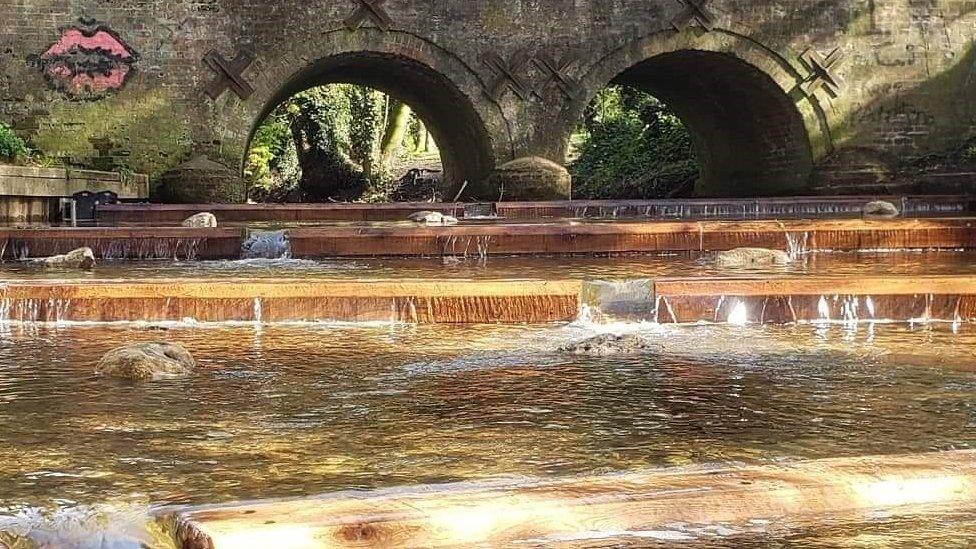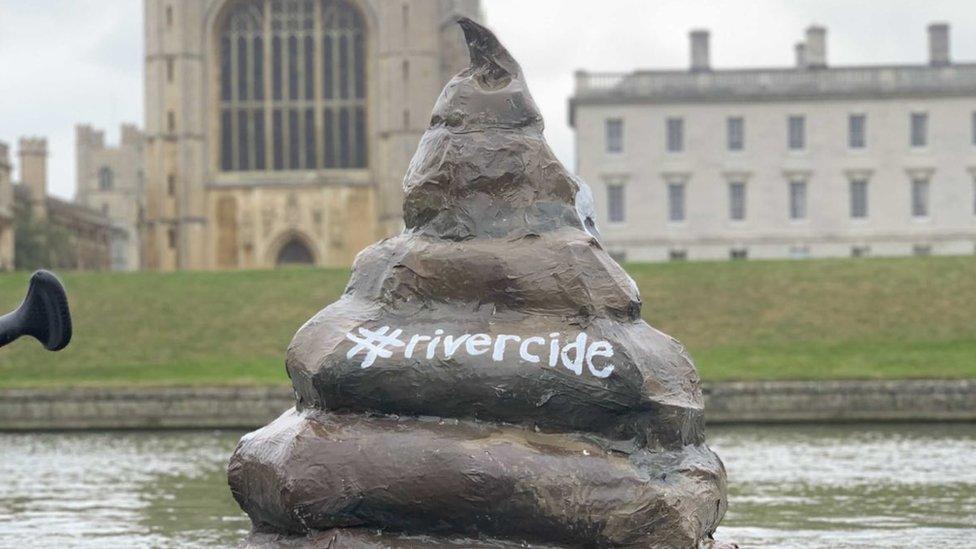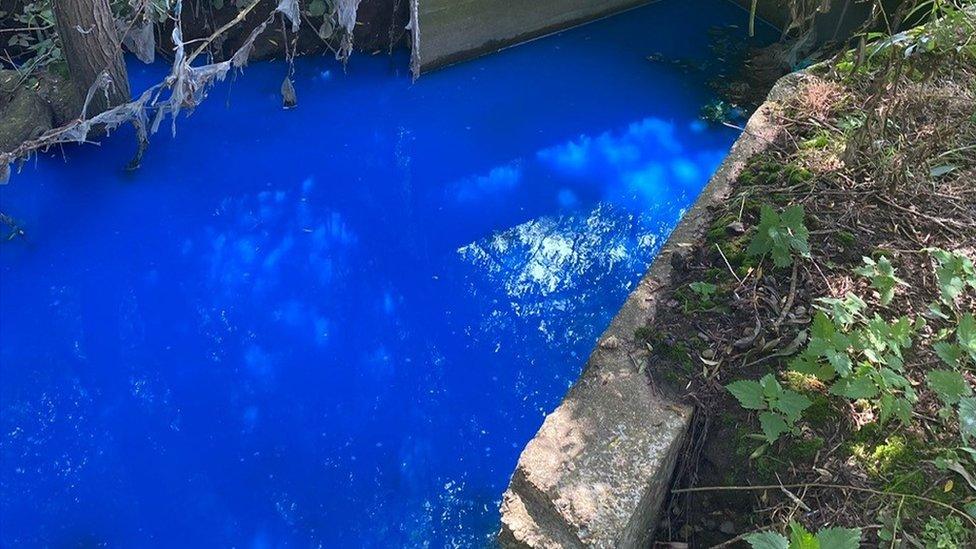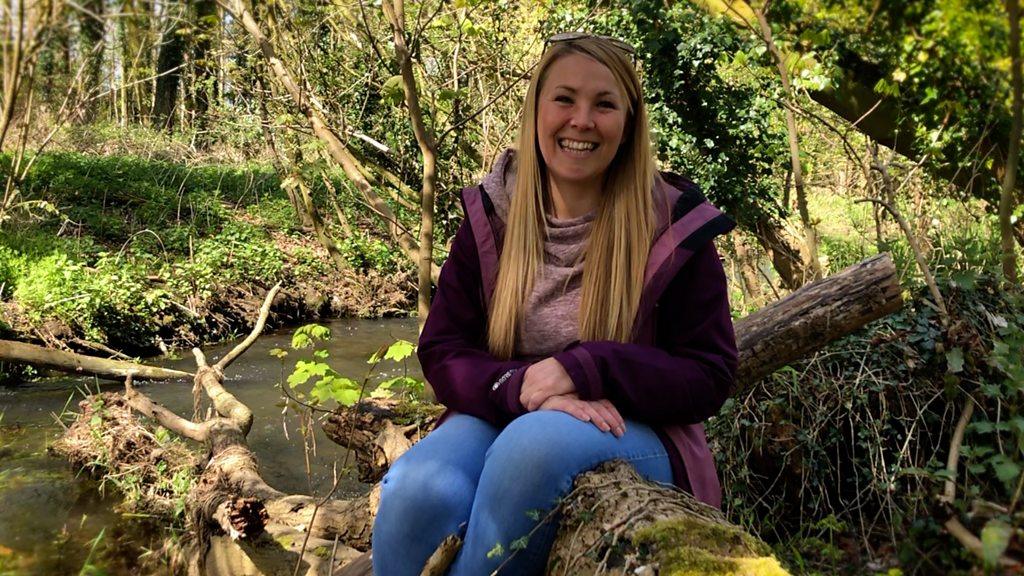Under-threat chalk streams need protected status
- Published

Wooden sleepers were added to the River Tiffey to help fish and eels navigate the water
Chalk streams threatened by pollution and urban development need enhanced protection status, a report said.
The Chalk Stream Restoration Group report, external looked at England's waterways, a third of which are in East Anglia, and what was needed to help habitats thrive.
Priority status would help drive investment in infrastructure and restoration, the report added.
The Environment Agency said the proposals needed "collective action".
Clear-watered streams contribute to global biodiversity and are a valuable habitat for Atlantic salmon, sea trout, grayling and lamprey, as well as otters, water voles and kingfishers, the report said.
Rare invertebrates such as the winterbourne stonefly and plants like stream water crowfoot, also rely on chalk streams.
The streams faced "significant challenges" from complex issues exacerbated by climate change and population growth, the Environment Agency added.
It said most water consumed in the East of England comes from rainwater the collects underground in natural chalk aquifers, which feed chalk streams.
The Environment Agency, which was involved in the strategy, said it was working with the National Trust on the restoration of the River Bure, external in Norfolk.
Earlier this year, a fish pass was installed, external on the River Tiffey at Wymondham in Norfolk to help fish navigate the stream, which is a tributary of the River Yare.
Simon Hawkins, the Environment Agency's area director, said: "Improvements in chalk streams across East Anglia are being made, but more needs to be done."
The strategy brought together partners including the Environment Agency, Natural England, Defra, water companies and environmental organisations.

Find BBC News: East of England on Facebook, external, Instagram, external and Twitter, external. If you have a story suggestion email eastofenglandnews@bbc.co.uk, external
- Published6 September 2021

- Published16 August 2021

- Published1 May 2021
